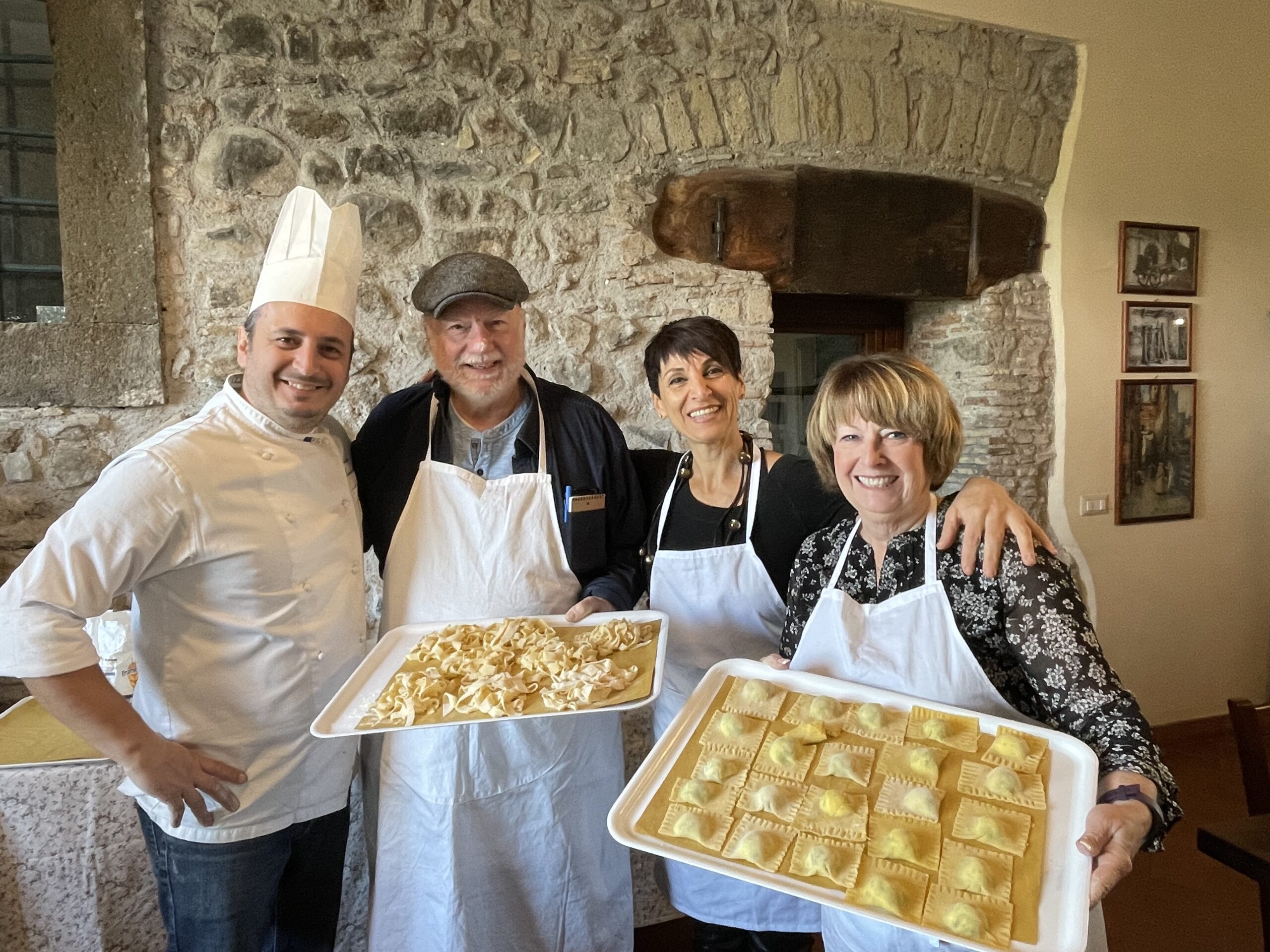
Employees must wash hands
April 17, 2023
My first experience with the wine from the Frascati region outside Rome was way back in the 1980s introduced by a work colleague in upstate New York. I remember it as crisp and clean; the colder it was, the cleaner it tasted. Forty years later, Carol and I were in a van being driven to the Minardi Historic Winery, nestled snugly amidst the Days of wine and ravioli of the very town of Frascati itself. Such an arc of history; I thought, In a slightly different youthful context, I could be traveling to Boone’s Farm, and nostalgically recalling a vow never to drink again.
“Even with the help of the machine, my own previous pasta making experiences had been hit and miss, and mostly miss. I was as likely to wind up with a fettuccine al dente. as I was a linguine al limpy.“
But this is a story of a great wine, rather than of a youthful foolish indiscretion. Before the wine tasting and history, though, we’d also signed up for a pasta making lesson. This was to be wholly handmade too, no chrome plated hand crank machines in sight. Even with the help of the machine, my own previous pasta making experiences had been hit and miss, and mostly miss. I was as likely to wind up with a fettuccine al dente. as I was a linguine al limpy. (I know, that’s a cringy bad description, but unfortunately accurate.)
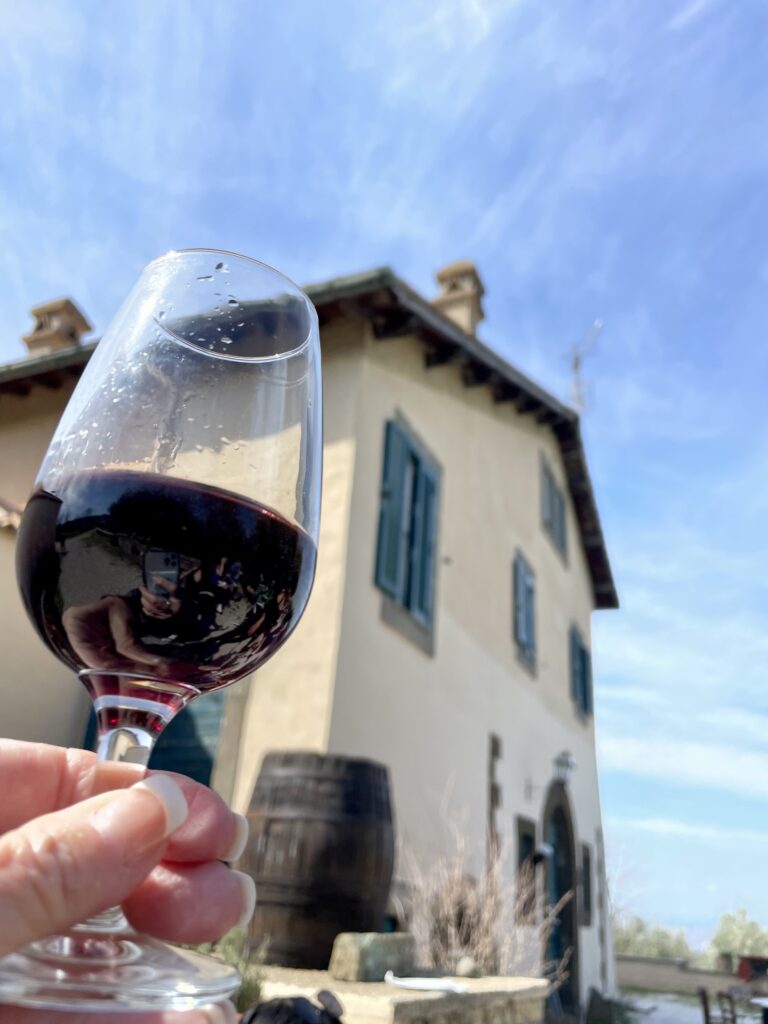
But chef Frabrizio patiently led us through the steps of flawless pasta making. “We” were an eclectic mix comprising several generations of spaghetti benders who believed pasta making started with a pot of boiling water, instead of ending with it. But by the end of the lesson, we had all succeeded in crafting perfect ravioli, fettuccine and something called maltagliati – pasta left over from the bits and pieces of the various cutting and shaping of the formal shapes, but perfect for making soup.
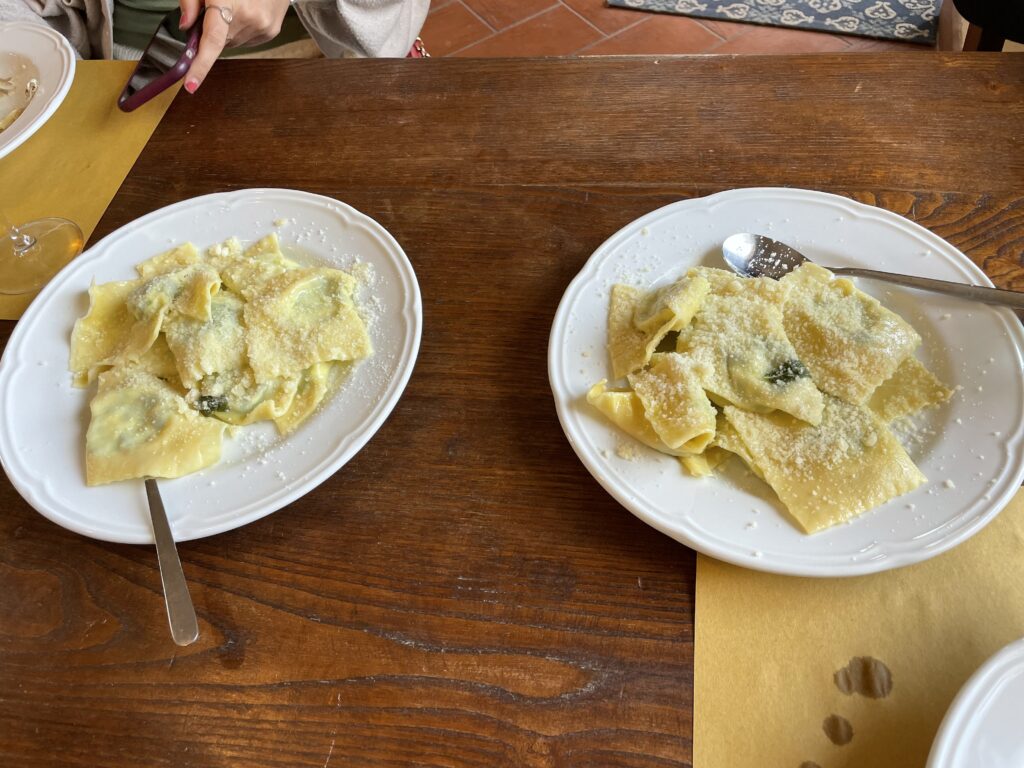
Then came the wine drinking, er I mean, wine tasting. A red, a sweet and my historically remembered crisp and light white were paraded and generously poured. At this point, we were joined by a group who’d signed up for the wine tasting part, but who’d also been invited to join the pasta makers for a lunch that had been formed with our very own hands – hands being the critical term for purposes of discussion here.
For during the lunch, there arose the voice of one wine taster, a matron perhaps from the whine region of Texas, who proclaimed she was declining our pasta because, “when I order it in a restaurant, I’m reasonably assured the cooks have washed their hands first. I don’t have such assurance here.” (My private hope at that moment was that she contracted gonorrhea from the bathroom on the train heading back to Rome.)
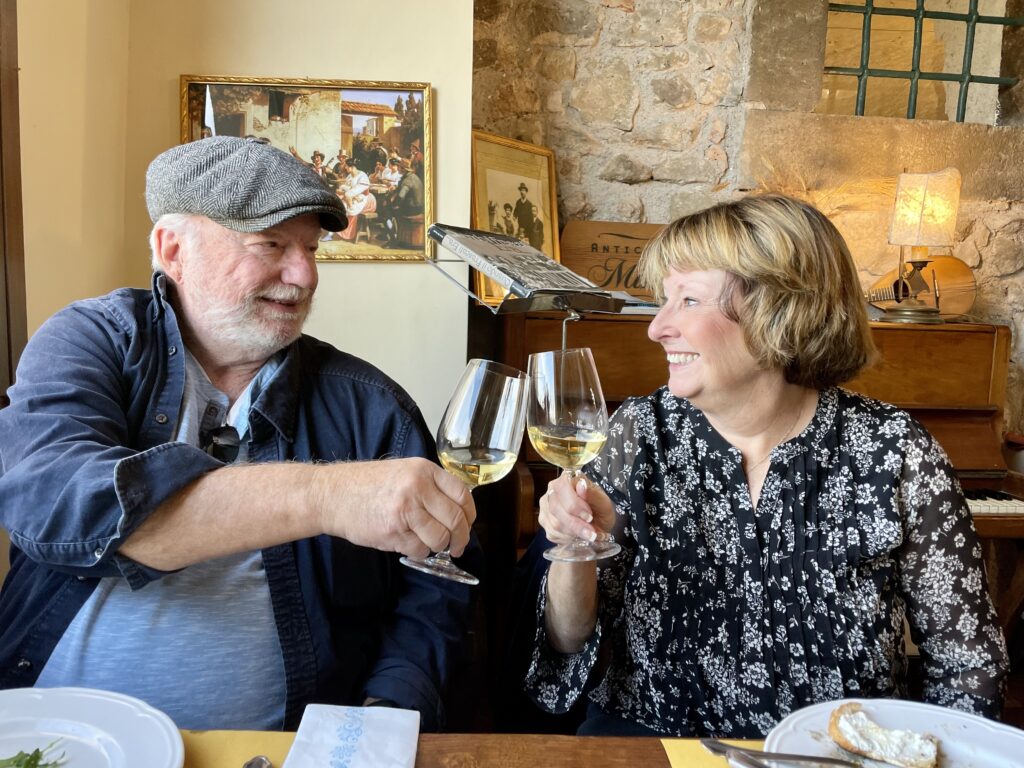
Ruminating whether that woman might have also lost ancient relatives in Pompeii, we made our way from this well-designed cooking, tasting and dining experience back home, having enjoyed one of those interactive travel experiences that didn’t have you feeling you were in any way fleeced. The Minardi family genuinely set out to provide us an authentic experience of Roman farming, pasta and winemaking. And they succeeded. Feeling I was back in ancient Rome, I even left with an Ides of March impulse directed at one Texas woman in particular. Et tu, Alamo?


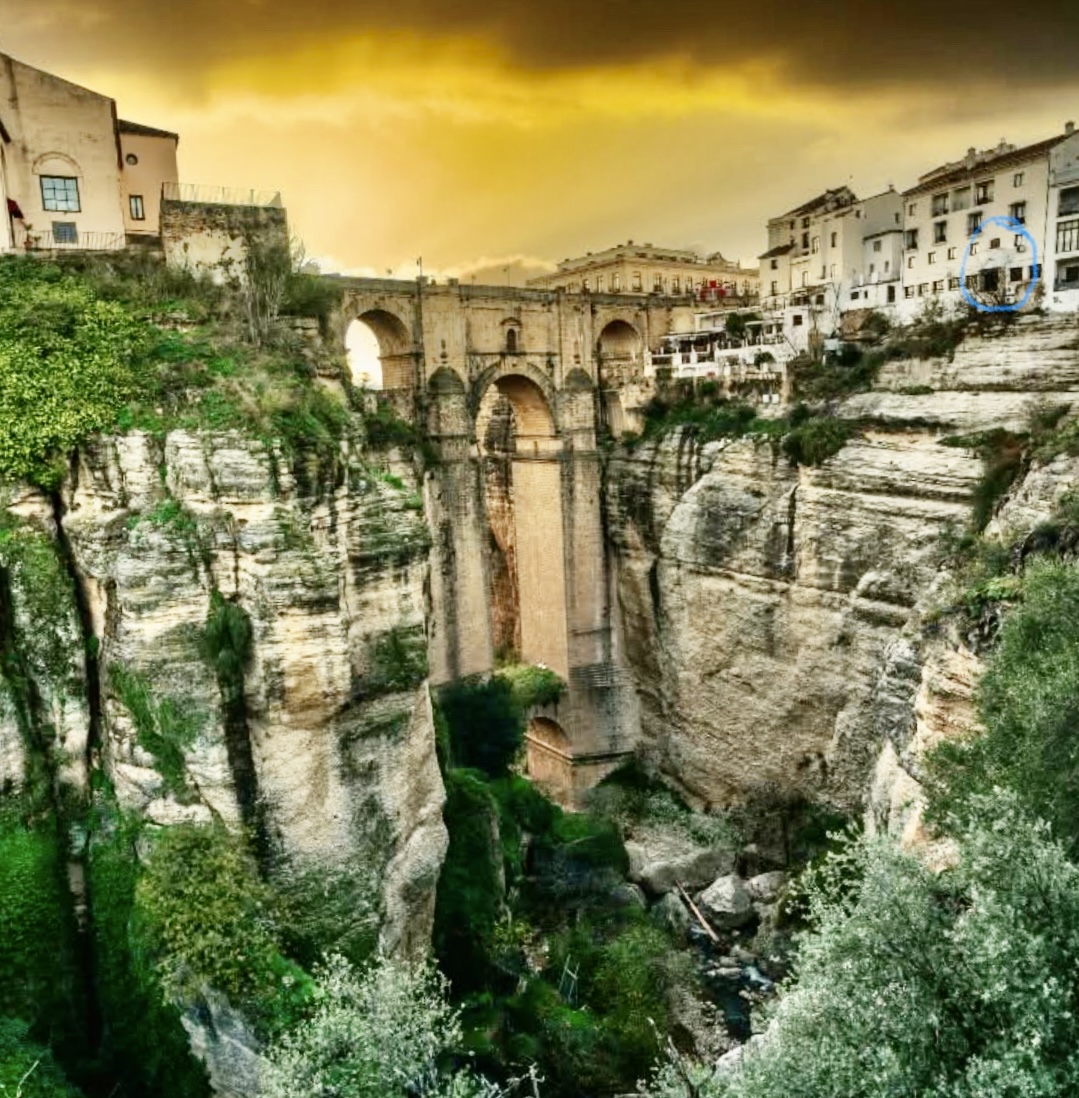
Be the first to comment